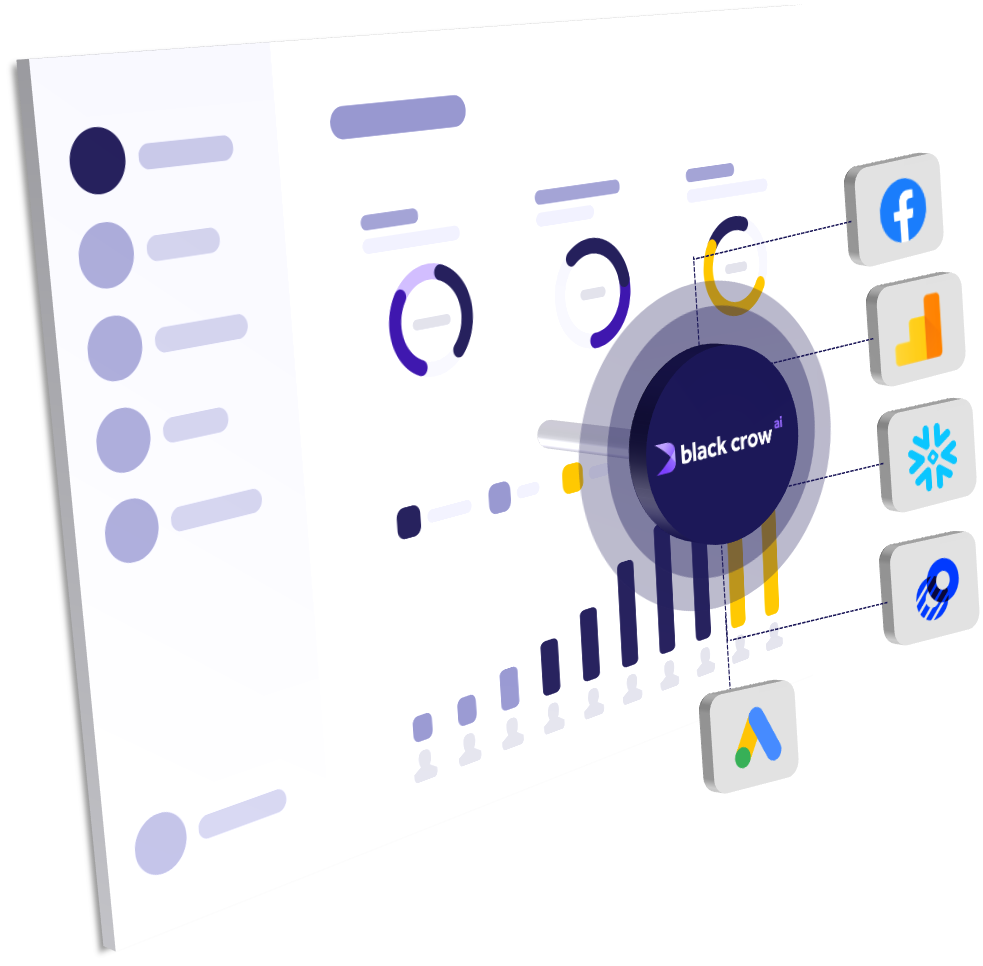In the pandemic era, when digital storefronts have become a matter of course for retailers, data analytics is proving its worth. Tools that analyze customer data can help better maintain stock, build a supply chain, detect fraud and predict which products might appeal to particular customer segments. Those advantages — as well as their ability to forecast inventory and measure the effectiveness of marketing campaigns — have driven predictive analytics software revenues to record heights. According to Zion Market Research, the predictive analytics industry made $8.12 billion in 2020 and is set to make over quadruple that — $39.1 billion — by 2028.
A number of vendors compete in the data analytics for e-commerce space, including DataHawk, which provides tools for sellers that ostensibly help increase sales by optimizing profit margins. Others include Trsel, which is designed to give small brands access to the same kinds of analytics larger online retailers have, and Varos, which aims to shed light on how companies compare to their peers in terms of customer acquisition costs.
Another relatively new company delivering data analytics to retailers is Black Crow AI, which today announced that it raised $25 million in a Series A round led by Imaginary Ventures, with participation from existing investors Primary Venture Partners, Bloomberg Beta, Interlock Partners and Vast Ventures. With a war chest now exceeding $30 million, CEO Richard Harris says that Black Crow will use the capital to “accelerate development of new and accessible machine learning use cases in both digital commerce and adjacent verticals” and expand the team across “product, client service, and commercial.”
“Everyone gets that companies of every size are generating unprecedented volumes of real-time data every day. From their internal operations, their customers, their suppliers, [and] their marketing activities: data. And, if that data can be made sense of with machine learning, companies can literally see into the future of their key KPIs via machine-learned predictions,” Harris told TechCrunch via email. “Black Crow is focused on the unserved middle of the market. The challenges are the same as at the large enterprise level, but the middle market has little-to-no access to the same type of talent, tools, and infrastructure as large enterprise companies.”
New York-based Black Crow was founded in 2020 by Harris and Shehzad Khan — both Travelocity veterans — alongside entrepreneur Damon Tassone. Harris was previously a consultant at Boston Consulting Group before co-founding Site59, which offered last-minute air-and-hotel weekend packages to mostly domestic destinations. Site59 was acquired for $43 million in 2002 by Travelocity, where Harris served as SVP of strategy and distribution prior to Expedia’s purchase of Travelocity in 2015.
Harris also started Intent, a data science company for online travel providers. Khan did stints at startups including Stunable and Rocket Fuel Inc. before working his way up to chief product officer at Intent. As for Tassone, who co-founded Site59 and was the president of EMEA at Travelocity, he was the deputy CEO at travel retailer Last Minute and the president of Intent.
The idea behind Black Crow was creating a platform that could deliver e-commerce-relevant predictions via an API that integrates with existing workflows, tools and software. Black Crow runs on top of retailers’ websites and uses streaming event data in customers’ browsers to train AI models and generate predictions (e.g. which product a customer is likely to buy) while the users are still on the site.

Harris claims that Black Crow’s predictions — which cover things like churn, customer experience and marketing spend — can be delivered in as little as 15 milliseconds after a user takes action inside their web browser and is then flowed into “all key business systems.”
“Imagine a world where digital commerce players could accurately know the future value of every prospect that lands on their site–from the moment they arrive,” Harris said. “We drive machine learning-driven outcomes, delivered as a service that works out of the box. We think this is the next huge opportunity in machine learning and AI — mass-market adoption and mass customization.”
When asked about Black Crow’s data retention policies, Harris said that user data isn’t shared across different retailers and that the platform only uses customers’ own first-party data. While Black Crow claims that it doesn’t share or sell data externally, the company retains user data for one year unless a user or brand requests for it to be deleted.
“The predictions we generate are another unit of that company’s first party data — it’s central intelligence that our customers own,” Harris clarified. “We are simply a processor giving them back processed, high-quality first-party data in the form of predictions.”
Predicting events on the fly
Broadly speaking, AI in retail is a burgeoning tech category, with the vast majority of retailers participating in a recent KPMG study saying their employees are prepared — and have the skills — for AI adoption. Retail business leaders responding to the survey expect that AI will have the biggest impact in customer intelligence, inventory management and chatbots for customer service, creating a virtuous adoption-investment cycle in the coming years.
“[I]t’s extremely complex to leverage real-time streaming data, but companies like Amazon generate huge commercial upside by using this data,” Harris said. “Black Crow’s first use case is optimizing digital commerce brands growth and efficiency. As the data landscape has changed, these customers have been forced to stop relying on the big platforms and data vendors — and instead to start making the most of their own first-party data assets.”
Not all retailers are climbing aboard the AI train. Nearly half of respondents to the KPMG survey cited cybersecurity breaches and possible bias as their top concerns about the technology, while 75% said they believe AI is more “of hype than reality.”
But Harris claims that more than 225 companies have Black Crow’s integration — which has generated over 1 billion predictions per month — installed. (It’s unclear how many of those are paying customers, as Black Crow offers a free 30-day trial.) Among the early adopters are Solo Stove, Sakara Life and Liquid IV.
“Black Crow was founded during the pandemic; the world moved to digital commerce at exactly the same time that changes in the data landscape made owning and leveraging data in a privacy-friendly way a key priority for companies everywhere,” Harris said. “The Black Crow team has already grown by over 150% in 2022 [to 40 employees] to meet the exponential growth in market demand for its machine-learned predictions.”































Comment